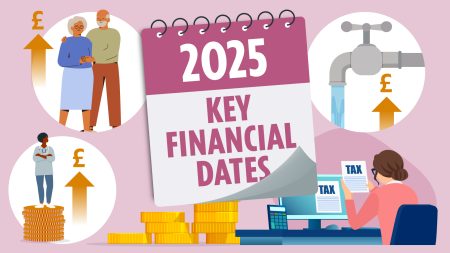January often strains finances after holiday spending, and December’s early paychecks can exacerbate this. Fortunately, individuals receiving Universal Credit in the UK have access to a range of financial support programs that can significantly alleviate this burden, potentially offering over £8,000 in combined benefits and discounts. It’s crucial to be aware of these entitlements and actively pursue them to maximize financial stability during this challenging period. A benefits calculator, like the one offered by Entitled To, can help determine eligibility and ensure you’re receiving the correct amount.
First, explore local council-administered programs like the Household Support Fund and Welfare Assistance schemes. The Household Support Fund varies by location, offering support for essential costs like food, utilities, and rent, potentially up to £500. Welfare Assistance provides emergency aid for low-income households and also varies by council, with some areas offering up to £500 for essential expenses. Additionally, Discretionary Housing Payments (DHPs) can assist with rent shortfalls or moving costs, averaging £518 per award.
Second, substantial savings are available on essential household expenses. A council tax discount based on income and household circumstances can save up to 75% on the bill, potentially amounting to over £1,600 annually for a Band D property. Energy bill discounts offered by most providers can alleviate the strain of rising energy costs, with some offering up to £1,700 in debt relief. The Warm Homes Discount provides a £150 credit towards energy bills for eligible households. Furthermore, affordable broadband packages (social tariffs) are available from most providers, and water companies also offer social tariffs with varying levels of bill reduction.
Third, parents can access various forms of support. Universal Credit covers up to 85% of childcare costs, offering significant relief with potential savings of up to £1,739.37 per month for two or more children. School uniform grants, available through local councils, can help offset the cost of new uniforms, with amounts ranging up to £200. The Healthy Start scheme provides financial assistance for food and vitamins for children under four, offering weekly payments ranging from £4.25 to £8.50, totaling up to £42.50 in January. A one-off £500 maternity grant is also available for first-time parents on Universal Credit.
Fourth, healthcare costs can also be mitigated. Free NHS prescriptions, dental treatment, and eye exams are available for Universal Credit claimants who meet specific income thresholds. These entitlements can result in substantial savings, particularly for those requiring regular prescriptions or dental care. Savings can range from waived prescription charges to hundreds of pounds for complex dental procedures. It’s essential to check eligibility and ensure these benefits are utilized.
Fifth, initiatives encourage saving habits and provide support for job-related expenses. The Help to Save scheme offers a 50% bonus on savings up to £50 per month, potentially offering a £25 bonus in January and accumulating up to £1,200 over four years. The Flexible Support Fund helps cover job-related costs such as training, childcare, travel, and work clothing, with potential support up to £150. This fund is administered through JobCentre Plus and can prove invaluable for those entering or re-entering the workforce.
Finally, in times of bereavement, the Funeral Expenses Payment can offer financial relief, covering up to £1,000 in funeral costs such as burial, cremation, and transportation. This support can alleviate some of the financial burden during a difficult time. Understanding and accessing these various support programs can make a significant difference in navigating the financial challenges of January and beyond. Remember to reach out to your local council and JobCentre Plus for specific details and application processes.











